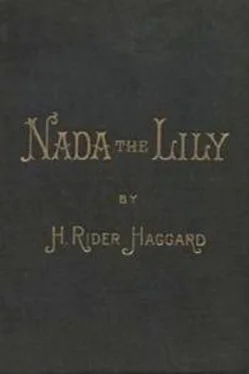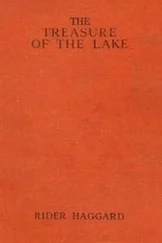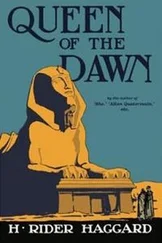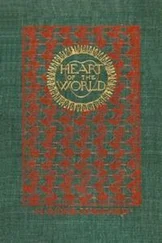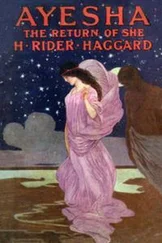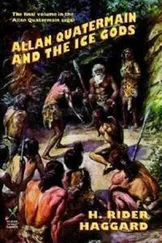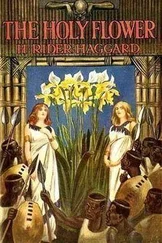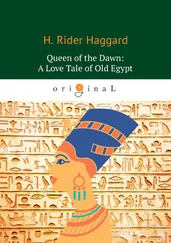Nada the Lily
H. Rider Haggard
Dedication
Sompseu:
For I will call you by the name that for fifty years has been honoured by every tribe between Zambesi and Cape Agulbas,—I greet you!
Sompseu, my father, I have written a book that tells of men and matters of which you know the most of any who still look upon the light; therefore, I set your name within that book and, such as it is, I offer it to you.
If you knew not Chaka, you and he have seen the same suns shine, you knew his brother Panda and his captains, and perhaps even that very Mopo who tells this tale, his servant, who slew him with the Princes. You have seen the circle of the witch–doctors and the unconquerable Zulu impis rushing to war; you have crowned their kings and shared their counsels, and with your son's blood you have expiated a statesman's error and a general's fault.
Sompseu, a song has been sung in my ears of how first you mastered this people of the Zulu. Is it not true, my father, that for long hours you sat silent and alone, while three thousand warriors shouted for your life? And when they grew weary, did you not stand and say, pointing towards the ocean: "Kill me if you wish, men of Cetywayo, but I tell you that for every drop of my blood a hundred avengers shall rise from yonder sea!"
Then, so it was told me, the regiments turned staring towards the Black Water, as though the day of Ulundi had already come and they saw the white slayers creeping across the plains.
Thus, Sompseu, your name became great among the people of the Zulu, as already it was great among many another tribe, and their nobles did you homage, and they gave you the Bayete, the royal salute, declaring by the mouth of their Council that in you dwelt the spirit of Chaka.
Many years have gone by since then, and now you are old, my father. It is many years even since I was a boy, and followed you when you went up among the Boers and took their country for the Queen.
Why did you do this, my father? I will answer, who know the truth. You did it because, had it not been done, the Zulus would have stamped out the Boers. Were not Cetywayo's impis gathered against the land, and was it not because it became the Queen's land that at your word he sent them murmuring to their kraals? [1] "I thank my father Sompseu for his message. I am glad that he has sent it, because the Dutch have tired me out, and I intended to fight them once and once only, and to drive them over the Vaal. Kabana, you see my impis are gathered. It was to fight the Dutch I called them together; now I send them back to their homes." —Message from Cetywayo to Sir. T. Shepstone, April, 1877.
To save bloodshed you annexed the country beyond the Vaal. Perhaps it had been better to leave it, since "Death chooses for himself," and after all there was killing—of our own people, and with the killing, shame. But in those days we did not guess what we should live to see, and of Majuba we thought only as a little hill!
Enemies have borne false witness against you on this matter, Sompseu, you who never erred except through over kindness. Yet what does that avail? When you have "gone beyond" it will be forgotten, since the sting of ingratitude passes and lies must wither like the winter veldt. Only your name will not be forgotten; as it was heard in life so it shall be heard in story, and I pray that, however humbly, mine may pass down with it. Chance has taken me by another path, and I must leave the ways of action that I love and bury myself in books, but the old days and friends are in my mind, nor while I have memory shall I forget them and you.
Therefore, though it be for the last time, from far across the seas I speak to you, and lifting my hand I give your "Sibonga" [2] Titles of praise.
and that royal salute, to which, now that its kings are gone and the "People of Heaven" are no more a nation, with Her Majesty you are alone entitled:—Bayete! Baba, Nkosi ya makosi!Ngonyama! Indhlovu ai pendulwa!Wen' o wa vela wasi pata!Wen' o wa hlul' izizwe zonke za patwa nguive!Wa geina nge la Mabun' o wa ba hlul' u yedwa!Umsizi we zintandane e ziblupekayo!Si ya kuleka Baba!Bayete, T' Sompseu! [3] Bayete, Father, Chief of Chiefs! Lion! Elephant that is not turned! You who nursed us from of old! You who overshadowed all peoples and took charge of them, And ended by mastering the Boers with your single strength! Help of the fatherless when in trouble! Salutation to you, Father! Bayete, O Sompseu!
and farewell!
H. RIDER HAGGARD.
To Sir Theophilus Shepstone, K.C.M.G., Natal. 13 September, 1891.
The writer of this romance has been encouraged to his task by a purpose somewhat beyond that of setting out a wild tale of savage life. When he was yet a lad,—now some seventeen years ago,—fortune took him to South Africa. There he was thrown in with men who, for thirty or forty years, had been intimately acquainted with the Zulu people, with their history, their heroes, and their customs. From these he heard many tales and traditions, some of which, perhaps, are rarely told nowadays, and in time to come may cease to be told altogether. Then the Zulus were still a nation; now that nation has been destroyed, and the chief aim of its white rulers is to root out the warlike spirit for which it was remarkable, and to replace it by a spirit of peaceful progress. The Zulu military organisation, perhaps the most wonderful that the world has seen, is already a thing of the past; it perished at Ulundi. It was Chaka who invented that organisation, building it up from the smallest beginnings. When he appeared at the commencement of this century, it was as the ruler of a single small tribe; when he fell, in the year 1828, beneath the assegais of his brothers, Umhlangana and Dingaan, and of his servant, Mopo or Umbopo, as he is called also, all south–eastern Africa was at his feet, and in his march to power he had slaughtered more than a million human beings. An attempt has been made in these pages to set out the true character of this colossal genius and most evil man,—a Napoleon and a Tiberius in one,—and also that of his brother and successor, Dingaan, so no more need be said of them here. The author's aim, moreover, has been to convey, in a narrative form, some idea of the remarkable spirit which animated these kings and their subjects, and to make accessible, in a popular shape, incidents of history which are now, for the most part, only to be found in a few scarce works of reference, rarely consulted, except by students. It will be obvious that such a task has presented difficulties, since he who undertakes it must for a time forget his civilisation, and think with the mind and speak with the voice of a Zulu of the old regime. All the horrors perpetrated by the Zulu tyrants cannot be published in this polite age of melanite and torpedoes; their details have, therefore, been suppressed. Still much remains, and those who think it wrong that massacre and fighting should be written of,—except by special correspondents,—or that the sufferings of mankind beneath one of the world's most cruel tyrannies should form the groundwork of romance, may be invited to leave this book unread. Most, indeed nearly all, of the historical incidents here recorded are substantially true. Thus, it is said that Chaka did actually kill his mother, Unandi, for the reason given, and destroy an entire tribe in the Tatiyana cleft, and that he prophesied of the coming of the white man after receiving his death wounds. Of the incident of the Missionary and the furnace of logs, it is impossible to speak so certainly. It came to the writer from the lips of an old traveller in "the Zulu"; but he cannot discover any confirmation of it. Still, these kings undoubtedly put their soldiers to many tests of equal severity. Umbopo, or Mopo, as he is named in this tale, actually lived. After he had stabbed Chaka, he rose to great eminence. Then he disappears from the scene, but it is not accurately known whether he also went "the way of the assegai," or perhaps, as is here suggested, came to live near Stanger under the name of Zweete. The fate of the two lovers at the mouth of the cave is a true Zulu tale, which has been considerably varied to suit the purposes of this romance. The late Mr. Leslie, who died in 1874, tells it in his book "Among the Zulus and Amatongas." "I heard a story the other day," he says, "which, if the power of writing fiction were possessed by me, I might have worked up into a first–class sensational novel." It is the story that has been woven into the plot of this book. To him also the writer is indebted for the artifice by which Umslopogaas obtained admission to the Swazi stronghold; it was told to Mr. Leslie by the Zulu who performed the feat and thereby won a wife. Also the writer's thanks are due to his friends, Mr. F. B. Fynney,
Читать дальше
